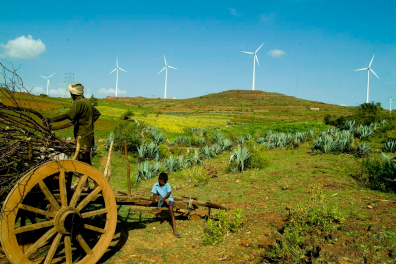BRICS and emerging economies 2025-2026 seminar: Ruptures, crises and recompositions

Seminar outline
Themes covered by speakers in the 2025-2026 season will continue to be marked by ruptures, crises and recompositions.
- Ruptures touch on the brutal political changes in the United States, which under the impetus of Donald Trump intends to redefine its relations with the outside world from top to bottom. This chaotic American attempt at a clean slate introduces a powerful factor of uncertainty into international relations, adding to pre-existing factors and tending to reshape the strategies and policies of public and private players, from China to Russia, Brazil to India and South Africa.
- Crises are prolonged and renewed. Firstly, the climate crisis, which is becoming increasingly obvious and profound, and whose economic consequences are now palpable in all emerging countries; secondly, geopolitical crises, starting with the war in Ukraine and the Near and Middle East, which are directly affecting Russia and Iran, members of the BRICS, and indirectly all emerging countries; thirdly, institutional crises, which are affecting the international organizations that emerged from the Second World War, particularly those designed to stabilize international economic relations. This has long been true of the WTO, but it could also affect international financial institutions such as the IMF and the World Bank, which face new challenges at a time when many emerging countries continue to distrust them.
- Recompositions, both in parallel with and in reaction to these processes, are also accelerating. Can the BRICS, now enlarged but with the Chinese locomotive experiencing increasing difficulties, organize themselves to influence the reforms of the Bretton Woods institutions and steer the international financial system in a direction that would satisfy them more? Should the European Union redefine its relations with some or all of the new BRICS to take account not only of their enlargement, but also of the new American order? Are the industrial and infrastructure policies of these major players changing as a result of a new wave of protectionism? How are companies reacting to the new state of the world?
The speakers at the BRICS seminar will address these questions through their specialist fields: international trade, finance, industrial economics, macroeconomics, sectoral and regional analysis will be mobilized to help understand the profound transformations affecting the BRICS and emerging economies today.
Seminar program
- Session 1: Wednesday, October 8, 2025 at 6pm - Maison de la Recherche - Salon Borel (1ère étage) - 2 rue de Lille Paris 7ème et en visioconférence (Lien Zoom ici)
- Yuan Zhigang (Fudan University (Shanghai): The new era of globalization and the "China 2.0"
- Session 2: Wednesday, October 22, 2025 at 6pm - videoconference only (Zoom link coming soon)
- Arman Ahunbaev (Eurasian Development Bank, Almaty) on regional issues of water management in Central Asia
- Session 3: Tuesday November 18, 2025 at 6pm - Maison de la Recherche - Salon Borel (1ère étage) - 2 rue de Lille Paris 7ème
- Jennifer Pedussel Wu (Berlin School of Economics and Law) onexchanges in high-tech products within the BRICS
- Session 4: Wednesday December 3, 2025 at 6pm - Maison de la Recherche - Salon Borel (1ère étage) - 2 rue de Lille Paris 7ème
- Bruno de Conti (University of Campinas, Brazil) on the BRICS' efforts to transform the international monetary and financial system
Scientific coordination
- Thibaud Deguilhem (Ladyss, Université Paris Cité)
- Guilhem Fabre (Université Paul Valéry Montpellier 3)
- Jean-Paul Maréchal (CEI, Université Paris-Saclay)
- Elsa Lafaye de Micheaux (CASE, Université Rennes 2)
- Julien Vercueil (CREE, Inalco)